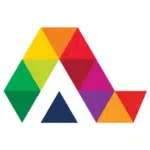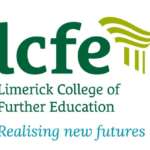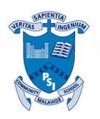An online event is being organised to launch the virtual platform of the new European Competence Centre for Science Communication. The event will be an opportunity to learn more about the platform that will be a focal point of the Competence Centre’s activities and how those involved in science communication will be able to shape it.
The launch event on 12 September 2024 will showcase the resources already available on the Competence Centre platform as well as providing insights into those that will be available in the future. The Competence Centre is being developed within the European Commission-funded COALESCE project. COALESCE is transforming knowledge from research funded through the EU Science with and for Society (SwafS-19) programme as well as other EU-funded and national science communication projects into resources and tools to achieve high-quality, evidence-based science communication. These resources will be available on the virtual platform. A connected network of National and Regional Hubs will support the work of the Competence Centre, helping to share news about the resources as well as adapting resources to different regional and national contexts.
During the launch event, that will take place 10am-2pm CET, there will be an opportunity to participate in a workshop to support the codesign of a matchmaking tool that will make it easier for researchers and journalists to connect with one another. There will also be an opportunity to hear about the Crisis Navigator for Rapid Mobilisation of Science Communication developed within COALESCE, which addresses how science communication can contribute when a crisis, such as the COVID-19 pandemic, emerges. A good practice guide for journalists in times of crisis will also be presented.
Other highlights will include a keynote by Tony Lockett, Communication Head of Unit in the European Commission’s DG Research and Innovation, on communication for excellent science. There will also be a roundtable on standards, principles and criteria for quality science communication resources.
More details on the event can be found in the provisional agenda, below.
| 10:00-10:05 | Welcome and agenda of the day |
| Session I | Building the future, moderated by Andy Ridgway, University of West England |
| 10:05-10:15 | Opening talk: COALESCE project: co-designing the EU Competence Centre for SciComm – what’s in there for you? Joana Magalhães, Science For Change |
| 10:15-10:25 | Keynote: Communication for excellent science, Tony Lockett, European Commission, DG Research and Innovation |
| 10:25-11:00 | Roundtable: Standards, principles and criteria for quality science communication resources with Liliann Fischer, Wissenschaft im Dialog, Anne-Sophie Gresle, InSPIRES Open Platform and Arko Olesk, Tallinn University, moderated by Michael Creek, StickyDot |
| 11:00-11:10 | Coffee Break |
| Session II | Opportunities for journalists, moderated by Andy Ridgway, UWE |
| 11:10-11:20 | Talk: Crisis navigator, Charlotte Bruns, Erasmus University Rotterdam |
| 11:20-11:30 | Talk: Good practice guide for journalists in times of crisis, Elisabetta Tola, Formicablu |
| 11:30-11:45 | Keynote: Science Journalism residencies in Europe – the FRONTIERS project, Daniela Ovadia, Scientific Director of CESJ and co-director of the Neuroscience and Society Lab at University of Pavia |
| 11:45-12:00 | Q&A |
| 12:00-12:10 | Talk: Science communication to build trust and multi-stakeholder engagement to tackle societal challenges, Georgios Papanagnou, European Commission, DG Research and Innovation |
| 12:10-12:30 | Lunch Break |
| Session III | Matchmaking for scicomm (only for confirmed participants) |
| 12:30-14:00 | Workshop: Co-design for a matchmaking tool between researchers and journalists, led by SFC and LUT |


















Comments